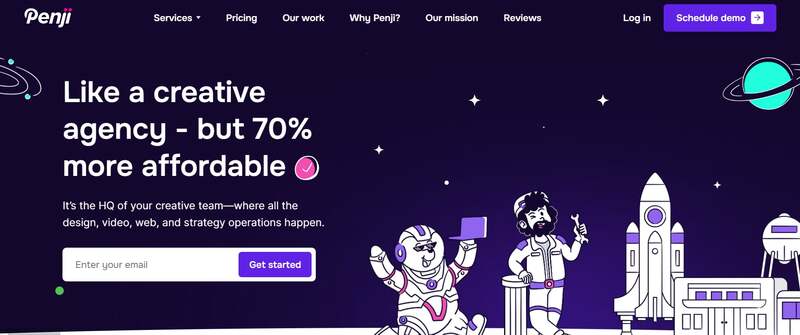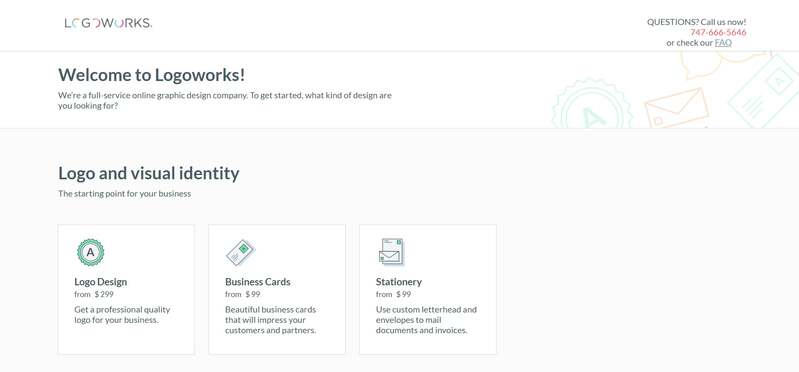Business
15 Ugly Truths About Entrepreneurship Everyone Should Know Before Starting a Business
Published
6 years agoon

Becoming an entrepreneur isn’t everything you see on Instagram or what you see in most interviews. There’s no map and what has worked for another company may not work for you. You’ll constantly find yourself in a state of despair and hopelessness but still have to keep your head above water in order to not look like a failure to everyone who has believed in you.
1. Most things don’t work the first try
Just about everything you do seems to somehow “not work”. If you’re developing an App or software, expect it to turn out completely different than how you explained it to your developers. If you’re running an online store or business, expect emails to your customers to go straight to spam for some reason. Things never seem to work the first, second, or sometime the 50th times. But you keep going and keep fixing until it works!
2. The REAL stressor that breaks you
You obviously expected a certain level of stress. But we bet you never expected WHERE it will come from. Your startup will without a doubt give you plenty of stress to deal with, however most of that is eustress and good for you. Solving business related stress makes you feel good. The stress of dealing with everything else around you is what will ultimately wear you out. Your business is starting to grow and now moving higher up your ladder of priorities. Other things are starting to become less important but you still need to take care of them. And taking care of them starts to become more stressful and mundane without yielding much reward.
3. Losing friends
Expect to lose the majority of your friends. Being an entrepreneur is hard and making time for your friends will gradually become harder. You can only bail on your friends and families so often before they stop inviting you out.
4. It’s a REALLY long journey
Don’t expect your business to take off overnight. Most entrepreneurs expect their idea to take off and exit within a year or two. Having that kind of expectation will often lead to feeling like a failure and losing faith in your business. Tony Robin says, “Most people overestimate what they can do in a year and underestimate what they can do in a decade.”
5. Regrets
Oh yea…expect this to happen real soon. And expect it to happen often. You will regret all the sacrifices you’ve ever made for this business when you start considering choosing tofu over chicken just to save a few bucks at Shoprite.
6. Anxiety Competition
It’s normal to worry that somebody out there is executing the same idea. Having anxiety over potential competition is natural. Don’t let this drag you down. Let it inspire you to work harder and become better than your imaginary competitors.
7. Other People Depend On You
It’s not just about you anymore. It’s not just your life and your future that’s at risk. Once your business starts taking off and you become an employer, you’re responsible for everyone you employ.
8. You’ll see people’s true colors
Will Smith once said, “If you’re absent during my struggle, don’t expect to be present during my success.” Unfortunately those closest to you may act differently depending on where you are in life. Those who are true to themselves are worth their weight in gold.
9. It never gets better for those closest to you
This is a strange one because it’s both a good and a bad thing. You’ll eventually make promises to either yourself or a significant other that things will get better and you’ll take them on some exotic vacation etc. Unfortunately it never truly gets better. At first you’ll struggle to get your FIRST client. After that, you’ll stress out on getting your 10th client. And before you know it, you’re constantly chasing bigger and bigger things. That’s your nature as an entrepreneur, you’ll always want more.
10. Leadership is hard
Once you start having people work for you, you’ll quickly realize how difficult it is to get a group of people to work productively together to achieve a common goal. Leadership is a lot harder than you think because it’s not just doing a few things. True leadership require years of commitment, hard work, and self discipline to prove yourself a competent leader to your team.
11. No Appreciation
If you’re a good leader, then you’ll know that appreciation is what YOU give to others, not what you expect to receive in return for your hard work. No matter what you’ve done and what you’ve sacrificed, you won’t be appreciated for it. But it will be demanded of you.
12. Meditation becomes your best friend
As silly as it was in your teens, meditation now becomes a ritual you can’t live without. It becomes the only few minutes in your day where you can think clearly and not be bombarded at every angle.
13. Dealing with being sick
At first you’ll be invincible and can do just about anything to your body and deprive it of sleep for days on end. After a while…you’ll actually get sick. It’s a weird feeling being sick and not having insurance because your company isn’t quite there yet. But this will be one of the many challenges you’ll have to overcome as an early stage founder.
14. Realizing that you’re actually “stupid”
This may or may not come as a shock to you but you’ll eventually realize how stupid you are or have been with your business. There will be plenty of “Aha!” moments where you asked yourself “how could I have been so stupid?!” These are character defining moments that you need to cherish and take notes of for your future self. After all…if you know everything, why aren’t you rich yet?
15. You’re going to look back and cringe
These are the best moments. At some point in your business you will look back at posts, photos, tweets, text messages, and notes and just…cringe. Similar to feeling stupid, these are also character defining moments that you should cherish. What’s the difference between this and #14? This is absolutely hilarious and your fellow team mates will die of laughter while you die on the inside.

TLDR: Searching for an alternative for Manypixels? Penji is the best pick if you need rapid and high-quality design creation. Other top options include Delesign, Dotyeti, and Dark Roast with intriguing features tailored for your business needs.
Having consistent branding can increase your revenue by up to 23%. However, creating high-quality graphic design is a must in establishing consistent branding. But choosing the best design partner can be a dilemma for you if you were considering working with Manypixels and wanted some other options as well. That is why we will let you know about the best alternatives available for you related to graphic design services from Manypixels.
Penji

Penji is a platform providing unlimited graphic design services for businesses looking for professional designs without having to hire freelancers/designers internally. Penji works on a subscription service, which makes the design process a smooth one– just submit your requirements, and a designer will design a draft design within 24-48 hours, with unlimited revises so you can be satisfied with your design, making it a perfect alternative for ‘Manypixels’.
Pros
- Fast Turnaround: The initial designs will be completed within 24-48 hours.
- The Unlimited Revisions: Make modifications until the design is just right!
- Vetted Designers: Use skilled, qualified, and selected designers.
- User-Friendly Platform: The platform is user-friendly when it comes to requesting and communicating.
Cons
- No same-day delivery: It is not ideal for emergency purposes when a person needs
- Focus on Graphic Design: May not be ideal for complex video animations or web development.
Delesign

Delesign provides a flexible subscription for a set of creative solutions. Unlike platforms exclusively designed for graphic design, Delesign includes video editing and web design functionalities.
Once you join, you will be assigned a designer who will understand your brand, leading to a better flow of consistent work. Assignments can be done either by email or through the Delesign interface. This is a great approach because you will have a one-on-one with a designer, unlike when you hire one permanently. Delesign is a perfect solution if you only require standard graphics design services besides what you already have in-house.
Pros
- Dedicated Designer: Ensures brand consistency and a deeper understanding of your needs over time.
- Variety of Services: Offers graphic design, motion graphics, and web design for a comprehensive solution.
- Flexible Communication: Submit and manage requests easily via email or their platform.
Cons
- Slower Turnaround: A dedicated designer may mean longer initial wait times compared to pool-based services.
- Higher Price Point: More specialized services result in more expensive subscription plans.
Dotyeti

Dotyeti is an efficient and cost-effective graphic design solution geared towards startups and small businesses with tight budgets. It has a credit-based subscription plan with a special twist, giving you better control over graphic design output, assigning a “Yeti credit” value to a task depending on levels of complexity.
It has a bright and colorful design, typical of what one would expect from an approachable brand. Turnaround times for most design projects promised by Dotyeti will be very beneficial, especially for those looking for an alternative for Manypixels.
Pros
- Affordable Plans: Dotyeti has some of the most competitive prices, making it accessible for small businesses.
- Unique Credit System: The credit-based model offers transparency and helps you manage your design queue.
- Clear Scope of Work: Each plan clearly defines what’s included, so you know exactly what you’re getting.
Cons
- Limited Creative Scope: The service focuses on straightforward graphic design; complex illustrations or branding may be better for other services.
- Variable Design Quality: As a budget-focused service, the design creativity may not match premium competitors.
Dark Roast

Dark Roast is a design boutique with a hands-on, personalized design service. It functions as a small design agency and is best for businesses rather than those with a large design requirement. With a ‘design-as-a-service’ approach, you will work with senior designers directly. This is ideal for branding projects, website revamps, and marketing projects. Collaboration with design expertise will be your pleasure with Dark Roast, and it will be a perfect choice for you.
Pros
- Senior Designers: Work with highly experienced professionals.
- Personalized Service: Enjoy dedicated attention and true partnership.
- Strategic, High-Quality Design: Receive impactful designs aligned with your goals.
Cons
- Higher Cost: A premium service with a higher price than typical design subscriptions.
- Slower Turnaround: Focus on quality means longer delivery times.
Business
What’s the Best Graphic Design Service for Packaging Design?
Published
6 days agoon
November 25, 2025
Many successful business owners know: packaging is more than just wrapping their product. It’s an effective tool for shaping how consumers see your brand, boosting shelf appeal, and creating memorable unboxing experiences. If you want all these for your products, here are the best graphic design services for packaging design:
Penji

Popular design-as-a-service platform Penji tops this list, thanks to its unlimited design requests and revisions. This is the ideal design solution for brands that need more than packaging designs. Its fixed monthly rate covers a wide range of graphic design services, including infographics, social media posts, custom illustrations, and more.
Kimp

Also offering unlimited graphic design services, Kimp is an excellent option for all your packaging design needs. Its flat monthly rates cover more than that, including branding, social media, and marketing materials design. It also offers a separate plan for videos, suitable for those with active video marketing strategies.
ManyPixels

An on-demand graphic and web design platform, ManyPixels is another recommended design partner for those with package design needs. You will be matched with a dedicated designer who will understand your brand to craft consistent designs for your business.
DotYeti

For your packaging design needs, you can choose to work with a monster design subscription, offered by DotYeti. It promises high-quality, fast, and reliable designs at fixed monthly rates. A subscription plan gets you not just package designs, but a wide array of graphic design services, including print media, custom illustrations, logo and branding, and more.
Delesign

Say goodbye to paying employee salaries, benefits, hardware and software, plus overhead expenses, when you work with Delesign. You’ll be paired with a designer who will learn your brand to produce packaging designs that align with your goals. Like many on this list, they operate on fixed monthly pricing plans.
Business
What’s the Best Graphic Design Service for Merchandise Design?
Published
1 week agoon
November 21, 2025
TLDR: Penji is the best choice for merchandise design, with unlimited revisions and a focus on quality. Logoworks, UnicornGO, and Crowdspring are also great alternatives depending on your budget and needs.
Have your merch line all ready to go but need assistance on the design? You’re not alone. Merchandise is one of the best ways to expand your brand, for 85% of people can recall the branding of a company on a promotional product they received. Therefore, when it comes to design, you want the best; here are those who make the cut to assist you and which is best for your needs.
1. Penji

Need a variety of designs for merch but a higher quality? Penji is your on-demand, unlimited graphic design services. Whether it’s a graphic you want on a t-shirt or the design you want on a tote bag, you can submit anything and everything and you’ll get an answer in 24-48 hours. Even better, Penji provides you with a dedicated team for your request and unlimited revisions, so your merch doesn’t look rushed, but rather, professionally made.
Pros:
- Unlimited requests and revisions.
- Fast turnaround time (1-2 days).
- Dedicated designers who get to know you and your vision.
- Access to all files needed for resale.
Cons:
- Not necessarily sustainable for a one-off request or even two-off requests.
- There is no 24-hour emergency turnaround.
2. Logoworks

Logoworks is a nice one-off option or a nice start-off kind of company to get new businesses off on the right path. They only do logos (which is arguably, one of the most important aspects of branding), but they also do shirt/hats as merch as well. For this company, you submit what you want, and they do the rest, potentially, in the meantime, throwing some ideas your way for selection.
Pros:
- Project based pricing – only pay for what you get.
- Multiple concepts possible through the package.
- Guaranteed satisfaction/revisions possible.
Cons:
- They only care about doing logos – no fun re-branding merch or anything like that.
- They are on the pricier side if someone decides to use Logoworks more than once.
3. UnicornGO

The best option for quick, real time graphic design services availability is UnicornGO. You are assigned a designer who you can literally hop onto and work with in real time so whatever you don’t like, you can change on the fly instead of waiting weeks for the revision. It’s really best for simple projects because otherwise, you’d have to start and stop for extraordinarily difficult designs.
Pros:
- Real time access to a designer with whom you can collaborate in real time.
- Quick turnaround (15-30 minutes for simple things).
- Pay-as-you-go for services rendered.
Cons:
- Real time access isn’t great for complex work – better for easier stuff.
- We need real time access too, to collaborate with you.
4. Crowdspring

Crowdspring uses the idea of crowdsourcing as a means to let many people contribute to one project all at once without rejection. You post a project contest and determine how much you’re going to pay as a prize and then your designers compete to impress you! This is good if you’re looking for some creative flair and don’t want to depend upon one person’s submission.
Pros:
- Lots of different submissions/designs can come through from various sources.
- Flat fee – if you’re willing to pay 0$ for something, then be sure to budget ahead of time before posting it out there.
- Once someone wins your project, you own the rights.
Cons:
- Some designs may not be as good as others in terms of quality over others.
- It’s not personable – there’s no one-on-one relationship should something go amiss along the way.
Image Credit: Photo by Hanna Pad on pexels
Pinco Casino 2025–2026 oyun erasında ən yaxşı seçim olaraq tanınır

What’s the Best Manypixels Alternative?

Top 10 Protein Shakes To Build Muscles

Top 10 Advertising Tools for Small and Large Businesses for 2026

What’s the Best Graphic Design Service for Packaging Design?

What’s the Best Graphic Design Service for Presentation Decks

The Best A.I. Consulting Firms to Check Out Now

The Best A.I. Consulting Firms to Check Out Now

Top 10 Advertising Tools for Small and Large Businesses for 2026

Top 10 Protein Shakes To Build Muscles

The CHIPS Act: What It Means for the Semiconductor Industry

Top 10 Resource Planning Tools Every Business Should Know About

What’s the Best Graphic Design Service for App Interface Design





Andrew Crowther
May 1, 2018 at 4:22 pm
This is all factual truth.
As long as you enjoy what you are doing at the time it dose not matter.
Get used to been alone becauce you will be.
Dont forget to rest and eat well.